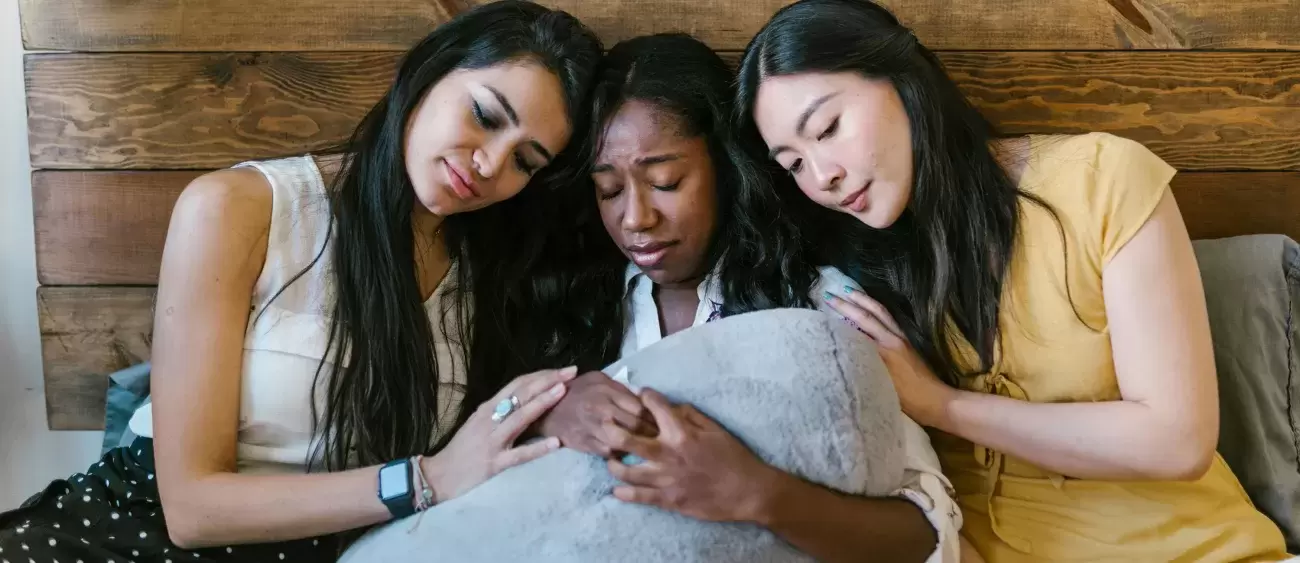Community violence and mental health

Experiencing community violence can trigger feelings of fear, anger, and helplessness. The information and resources below can help you to better understand what community violence is and how to cope with these traumatic events.
Defining Community Violence
Community violence happens when a person harms someone in a public location. This violence can affect people and communities in different ways:
Community violence affects some groups more than others. Black and Latine youth are three-to-seven times more likely to be exposed to a gun homicide compared to white youth. Low-income neighborhoods are also affected by community violence more often. These groups have a high need for mental health services. But stigma and a lack of resources may make it hard for them to get support.
One short-term effect of community violence is acute stress. This happens after a single event. People with acute stress may experience things like flashbacks and sleep challenges. Because of this stress, many people go to the hospital for mental health help after violence happens.
Children who experience community violence are more likely to have PTSD when they grow up. People who see gun violence are at a higher risk for suicide, psychosis, and depression. Trauma from violence can also affect future generations. If parents have mental health challenges, it can affect how their children grow up.
Community Violence and Mental Health
Community violence has short- and long-term effects on mental health. Some people are more likely than others to experience community violence.
This happens when someone hurts another person’s body, like in fights, shootings, or stabbings. Some examples of physical violence are: gang violence, hate crimes, or school shootings.
This type of violence affects the mind. Psychological violence can include things like threats or bullying. For example, gangs might scare people to control a neighborhood.
This happens because of unfair systems in society. One example of this is food deserts, where there aren’t enough grocery stores in low-income areas. This makes it more difficult for people to find healthy food and can lead to health challenges.
How to cope with community violence
Community violence can cause fear, grief, anger, and other tough emotions. Finding ways to support yourself and others through this time can make it easier to manage mental health challenges.
Community care is an important part of the healing process after a tragic event. When community members come together to support each other and think of ways to move forward, they support the mental well-being of everyone. This can make people feel more connected and less afraid.
Going through something as tragic as community violence can make life feel hard to manage. You may be feeling more anxiety than usual or maybe you are still in shock. Taking some time to think about your feelings and identifying a few healthy coping tools can make things easier. Some people may cope by doing a creative project that helps them process the event. Others may want to get their mind off of things and do a sport or physical activity. Whatever you choose, finding ways to cope with your emotions can help you feel more grounded during this tough time.
After community violence occurs, there is often a lot of media coverage of the event. Some of this coverage can be graphic and triggering to watch. People may also be spreading information on social media. This can fill your newsfeed with images that could be hard to see. Think about what boundaries you might want to put in place to protect yourself from getting overloaded with triggering information. You could try unfollowing certain accounts so you don’t see posts related to the event in your social media feeds. You could also try only watching the news for 30 minutes each day. Limiting media consumption can make it easier to maintain your mental health through this challenging time.
When difficult things happen, some people like to take action. It helps them feel a sense of purpose and increases their feelings of hope and positivity. You do not have to advocate for your community to cope. But those who do want to do this advocacy work may choose to focus on preventative measures and policy change. You could create a community violence prevention program or focus on youth engagement. You could also advocate for policies on gun control or community policing. When advocating for others, it can be easy to lose sight of your own needs. Do your best to continue taking care of yourself while you care for your community.
It is important for community leaders and mental health professionals to support those facing community violence. If you are the victim of community violence, remember that you are not alone. Finding ways to connect with others can help you and your community heal during this challenging time.
Resources
If you or someone you know is struggling or in crisis, help is available. Call or text 988 or chat at 988lifeline.org to reach someone 24/7. You can also reach the Crisis Text Line by texting HOME to 741741.
Take a Mental Health Test
If you or a friend are struggling with your mental health, take an anonymous, free, and private mental health test. It only takes a few minutes, and after you are finished you will be given information about the next steps you can take based on the results.


